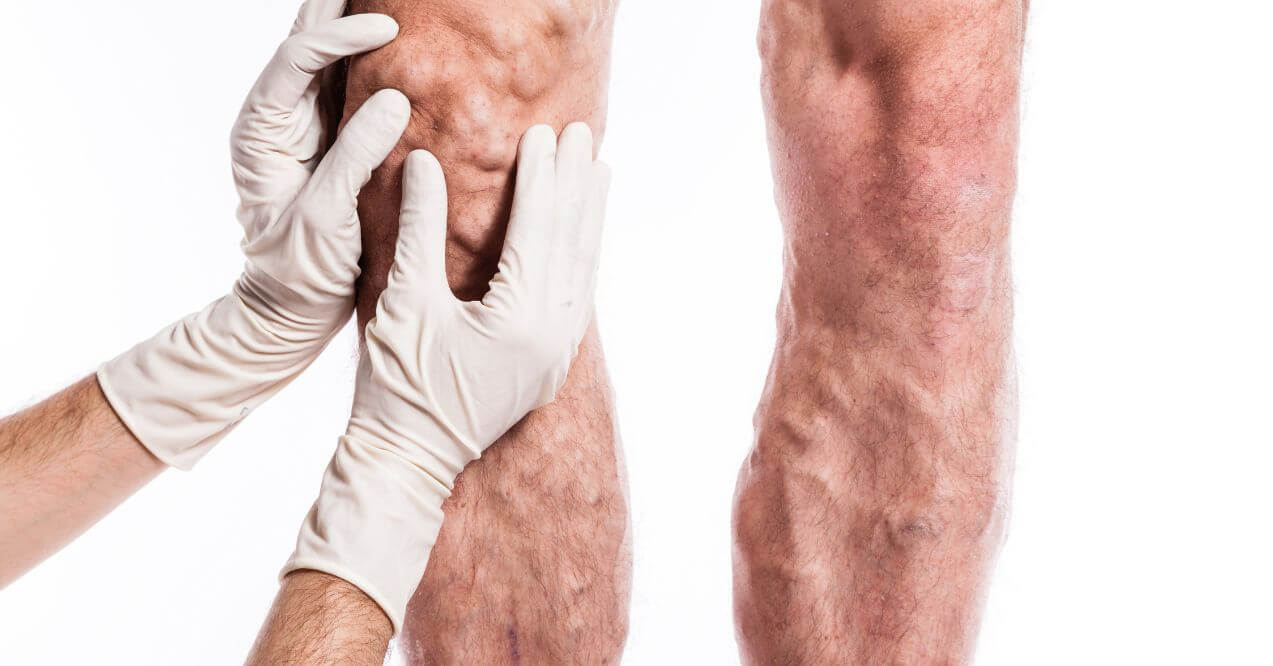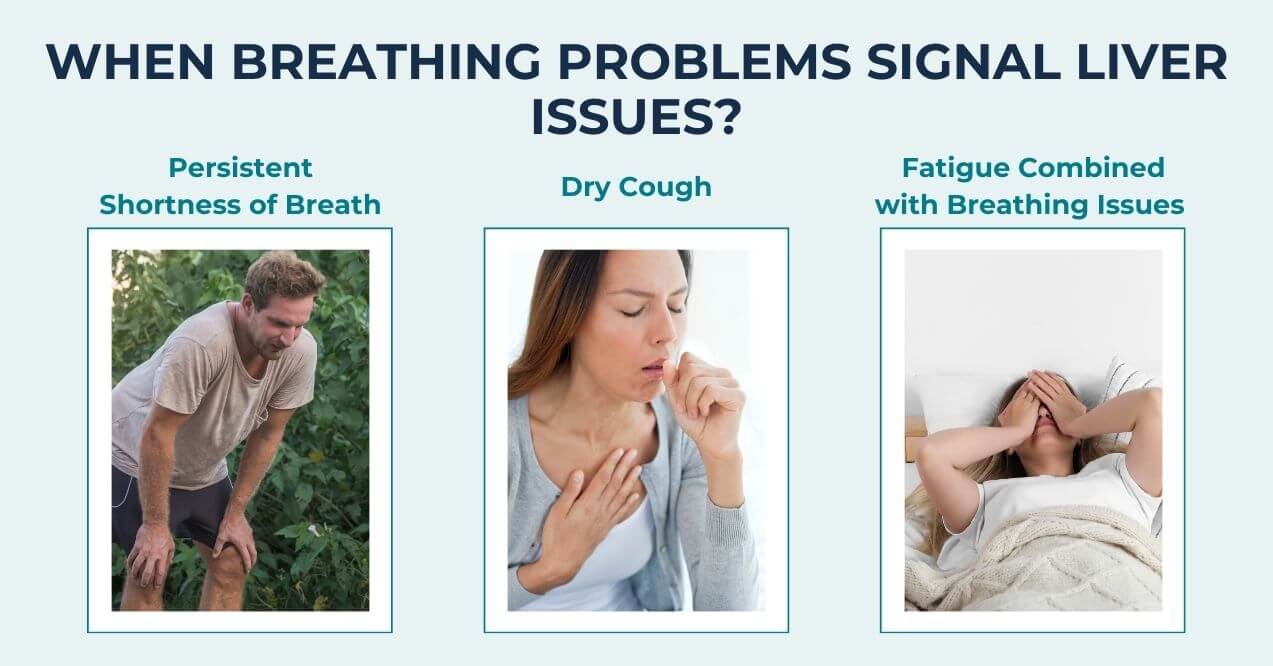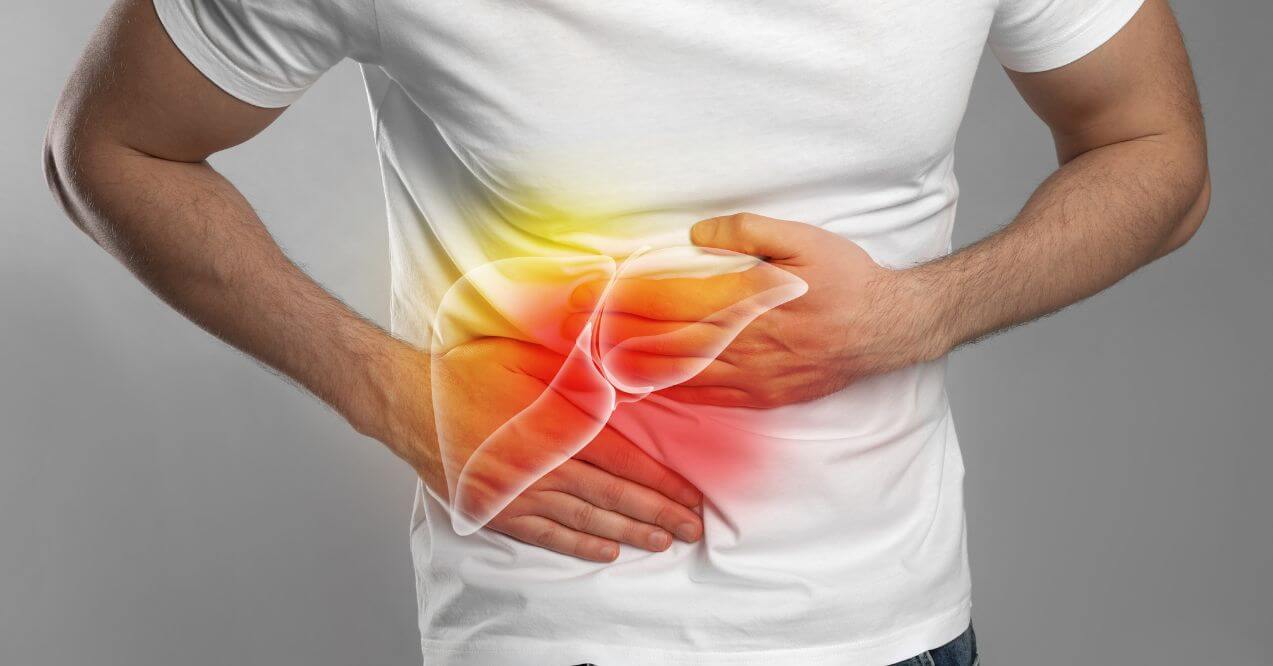Can Liver Disease Cause Shortness of Breath? Liver-Lung Connection


If you’ve been experiencing shortness of breath or a persistent cough, you might think it’s just a respiratory issue. But there could be another reason – your liver. Many people don’t realize that liver disease can cause breathing problems and lead to symptoms like shortness of breath. Can liver disease cause shortness of breath? The answer is yes, and it’s more common than you might think.
In this article, we’ll explore the surprising connection between liver health and respiratory issues, including how liver disease can affect your breathing and what you can do about it.
Why Do We Care About Liver?
Your liver is a vital organ in the upper right part of your belly. It does many important jobs to keep you healthy. Let’s look at what your liver does for you:
- Cleans Your Blood – Your liver acts like a powerful filter. It removes toxins, waste, and old blood cells from your system. This cleaning process keeps your body in good shape.
- Helps Digestion – Your liver makes bile. This substance breaks down fats in your gut, helping your body absorb nutrients better.
- Stores Energy – When you need a boost, your liver releases stored sugar into your blood. This helps keep your energy levels steady.
- Make Vital Proteins – Your liver creates proteins that help your blood clot and fight off germs. These proteins also move important substances around your body.
- Holds Vitamins and Minerals – Your liver stores vitamins A, D, and B12, as well as iron and copper. It releases these when your body needs them.
Your liver is like a busy worker that keeps your body running smoothly. If it’s not working well, it can affect many parts of your health, including how well you breathe.
Can Liver Disease Cause Shortness of Breath?
Yes, liver disease can indeed cause shortness of breath and other breathing problems. This connection might surprise you, but it’s important to understand. Let’s explore how liver disease can affect your ability to breathe comfortably.
1. Hepatopulmonary Syndrome (HPS)
Hepatopulmonary syndrome is a condition that can develop in people with advanced liver disease. Here’s what happens:
- Blood vessels in your lungs start to widen or dilate.
- This widening makes it harder for your lungs to absorb oxygen properly.
- As a result, you may feel short of breath, especially when you’re active or standing up.
People with HPS often notice they breathe easier when lying down. This is because gravity helps blood flow to the lungs more effectively in this position.
2. Portopulmonary Hypertension

This long name, often referred to as Portal Hypertension, describes a serious complication of liver disease. Let’s break it down:
- “Porto” refers to the portal vein, which carries blood from your intestines to your liver.
- In liver disease, this vein can become blocked, causing high blood pressure.
- This increased pressure can affect your lungs, leading to “pulmonary hypertension” or high blood pressure in the arteries of your lungs.
When this happens, your heart has to work much harder to pump blood through your lungs. This extra strain can cause shortness of breath, especially during physical activity.
3. Fluid Accumulation
Liver disease can cause fluid to build up in your body. This happens in two main ways:
- This is when fluid collects in your belly area.
- A swollen belly can push up against your diaphragm, the muscle that helps you breathe.
- This makes it harder for your lungs to expand fully, leading to shortness of breath.
- Sometimes, fluid can build up around your lungs in the space called the pleural cavity.
- This puts pressure on your lungs from the outside.
- As a result, your lungs can’t expand as much as they should, making breathing difficult.
Both of these fluid buildups can make you feel short of breath, especially when lying down or being active.
Understanding these connections between liver disease and breathing problems is crucial. Can liver disease cause shortness of breath? The answer is yes, and if you have liver disease and notice changes in your breathing, it’s important to talk to your doctor. They can help determine the cause and find the best ways to manage your symptoms and improve your quality of life.
Remember, while liver disease can cause breathing issues, many treatments are available to help you breathe easier and feel better overall. Being aware of how liver disease can affect your respiratory system is key to getting the right care and support.
When Breathing Problems Signal Liver Issues?

Recognizing early signs that your liver might be affecting your breathing is crucial. Here are some symptoms to be mindful of:
- Persistent Shortness of Breath – Feeling unusually out of breath, even during simple activities, could be linked to liver function issues.
- Dry Cough – A lingering dry cough without apparent cause might be related to liver stress.
- Fatigue Combined with Breathing Issues – Constant tiredness, especially when paired with shortness of breath, might indicate liver problems.
Other warning signs of liver damage include skin changes, abdominal discomfort, changes in urine or stool color, and unexplained weight loss.
Liver Disease and Coughing Up Phlegm

Coughing up phlegm is your body’s way of clearing thick, sticky fluid from your airways. The color of this phlegm can tell you a lot about your health. Clear or white phlegm is common and usually nothing to worry about. However, yellow or green phlegm might signal an infection.
If you notice blood in your cough, take it seriously. This requires immediate attention from your doctor. Various factors can cause changes in your phlegm, from irritated airways to complications of liver disease.
Don’t hesitate to seek help if you experience a new or changed cough, any blood in your phlegm, or severe, persistent coughing. Breathing difficulties are also a red flag. Remember, ignoring these symptoms won’t make them go away.
Consulting your healthcare team is crucial for proper management. They can help you control your cough and address any underlying liver disease. Your health matters, so take action today!
Simple Tips to Support Liver Health and Improve Breathing
Your liver is tough and can heal itself. Take care of it to lower your risk of severe liver disease and breathing problems. Here’s how:
- Watch Your Drinking. Too much alcohol can harm your liver. If you drink, do it in moderation.
- Keep a Healthy Weight. Being overweight can lead to fatty liver disease. Eat a balanced diet and exercise regularly to maintain a good weight.
- Eat Liver-Friendly Foods. Do a research about what foods can damage your liver and try to avoid them. Instead, choose a healthy diet with whole foods like fruits, vegetables, lean meats, and whole grains.
- Be Careful With Medications and Alcohol. Some medicines can hurt your liver, especially with alcohol. Always ask your doctor about possible interactions.
- Get Your Shots. Vaccines can protect you from hepatitis A and B, which can damage your liver.
- Practice Safe Sex. Hepatitis B and C can spread through sexual contact. Use protection to lower your risk.
- Avoid Harmful Chemicals. Limit your exposure to cleaning products, pesticides, and industrial chemicals. Wear protective gear when needed.
- Manage Other Health Issues. Conditions like diabetes and high cholesterol can affect your liver. Work with your doctor to keep these under control.
- Get Regular Checkups. If you’re at risk for liver disease, talk to your doctor about liver function tests and screenings.
- Consider Liver-Support Supplements. Adding a supplement to your routine can promote liver health and complement your efforts. Click here to find the best supplement for liver health for you.
By following these healthy habits, you can support your liver’s health and reduce your risk of serious liver problems and related breathing issues.
Remember: Catching liver problems early is key. If you notice any symptoms or worry about your liver health, see your doctor right away.
When to Seek Medical Advice for Liver Disease and Shortness of Breath
If you’re experiencing a persistent shortness of breath that isn’t improving, it’s wise to consult a healthcare professional. While it might seem like a minor issue, lasting lung problems can sometimes signal underlying health concerns that benefit from early attention. A doctor can assess your symptoms, provide a proper diagnosis, and recommend appropriate treatment if necessary. Early consultation can lead to timely interventions that promote better health outcomes.
Final Thoughts
While it may be surprising, liver disease can indeed cause shortness of breath and other respiratory symptoms. Can liver disease cause shortness of breath? The answer is a resounding yes. Understanding this connection is crucial for detecting liver problems and managing how to improve lung health. By maintaining a healthy lifestyle and seeking prompt medical attention when needed, you can better manage liver disease and its potential impact on your breathing.
Remember, if you experience persistent shortness of breath, unexplained coughing, or other concerning symptoms, consult a healthcare professional. They can provide a proper diagnosis and develop a treatment plan to address both your liver health and respiratory function, ensuring you breathe easier and live healthier.
Yes, liver disease can sometimes cause respiratory symptoms like a cough. This is often due to complications that affect the lungs. However, a cough with yellow phlegm is more commonly a sign of a respiratory infection.
Possibly. Advanced cirrhosis can lead to breathing problems, but your cough could also have other causes. It’s important to discuss this with your doctor for proper assessment.
Your doctor may recommend:
• Liver function tests: To assess how well your liver is working.
• Imaging tests (ultrasound, CT scan, MRI): To visualize your liver and lungs.
• Lung function tests: To measure your lung capacity.
• Arterial blood gas test: To check your blood oxygen levels.
• Echocardiogram: To assess heart function and pulmonary blood pressure.
• Liver biopsy: In some cases, to examine liver tissue.
















